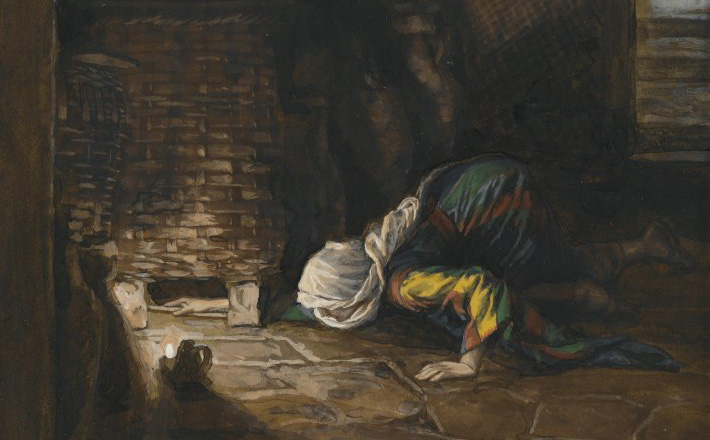Commentary on Jeremiah 4:11-12, 22-28
It’s bad enough when one knows one has a problem.
It’s even worse when everyone else knows it too. With these verses, Jeremiah takes Israel’s troubles to a whole new level. Nature and the entire cosmos are not only aware but also affected by the nation and its failures. Jeremiah knew what many today are just beginning to understand, “the world is so interconnected . . . human words and deeds . . . human sin and evil can have . . . wide-ranging effects in the world of nature.”[1]
The image of a hot wind from the desert (verse 11) ushers in God’s warning that an unimaginable disaster is on its way. This disaster would surpass God’s previous efforts to winnow and cleanse the nation. This time, the divine intends the unimaginable, near total destruction. What remains will be only a shell of what has been.
The three-fold analysis (verse 22) is an indication of just how bad things are. The nation is described not only as being foolish and lacking in knowledge of God, but also as stupid children with no understanding, who are skilled in doing evil without any perception of how to do good. Repetition reinforces the seriousness of Israel’s predicament. Louis Stulman clarifies, “All three indictments assert that the community is on the way to destroying itself by its social malaise and infidelity to Torah. In enumerating the reasons for the coming disaster, the poems establish the responsibility of the nation, exonerate God of blame, and demonstrate that God’s judgment is fully just and justified.”[2]
Even in the midst of this heartbreaking assessment, God calls the Israelites, “my people.” How different from an earlier time when God seems willing to risk connection to the descendents of Abraham. After the golden calf incident, God is so displeased with the nation that God threatens to kill everyone and start over with Moses. Like a frustrated parent who says “your son” or “your daughter” instead of saying “our son” or “our daughter” and like the jealous brother of the prodigal son who says “your son” instead of saying “my brother,” God intentionally puts distance between the divine and the nation. God says to Moses, “Your people, whom you brought up out of the land of Egypt, have acted perversely” (Exodus 32:7). In this story, God offers no opportunity for repentance or healing. If Moses had not intervened, the relationship between God and the nation Israel as descendents of Abraham would have been forever broken.
Now that God and Israel have been together for generations, God is not so cavalier about the relationship. Instead of saying “your people” with no option for penitence, God says “my people.” Interminably bound to “my people,” God will again issue a call for repentance and give Israel an opportunity to change its future.
For now, God does everything possible to get Israel’s attention. Through images of heaven and earth in disarray, Jeremiah warns that things will get worse before they get better. These images of cosmic disorder suggest a reversal of creation in order to convey the hopelessness of the situation. Terence E. Fretheim observes, “The four-fold ‘I looked’ [verses 23-26] provides a haunting rhythm to the depiction of the catastrophe.”[3]
The ancient image of the heavens covered in black (verse 28) is a reminder of contemporary scientists’ descriptions of black holes from which nothing, not even light can escape. The image even anticipates recent discovery of invisible particles of dark energy that comprises more than ninety-five percent of the cosmos. The image of the heavens covered in black communicates just how dreadful things are.
One might suppose that all hope is lost. Yet, even now, there is reason to hope. Even now, with cities laid in ruins, with neither bird nor human to be found, with the earth in mourning and the heavens covered in black. Even now when the earth is void and the heavens give no light. With mountains moving and the fruitful land a desert, even now, the relationship is not ended.
God’s affirmation of the divine decision to bring disaster in verse 28, “I have not relented nor will I turn back,” is not the last word. The decision not to relent combined with the decision not to make a full end of things leaves open the possibility for repentance and for a remnant to rebuild the nation. This glimmer of hope is present because, ultimately, God seeks healing and wholeness for the nation, not an end to the relationship.
Walter Brueggemann suggests that prophetic discourse “is not a blueprint for the future. It is not a prediction. It is not an act of theology that seeks to scare into repentance. It is, rather, a rhetorical attempt to engage this numbed, unaware community in an imaginative embrace of what is happening … because … evil finally must be answered for.”[4] The message of the consequences of evil and the possibility of healing and wholeness is as germane today as it was in Jeremiah’s time.


September 15, 2013